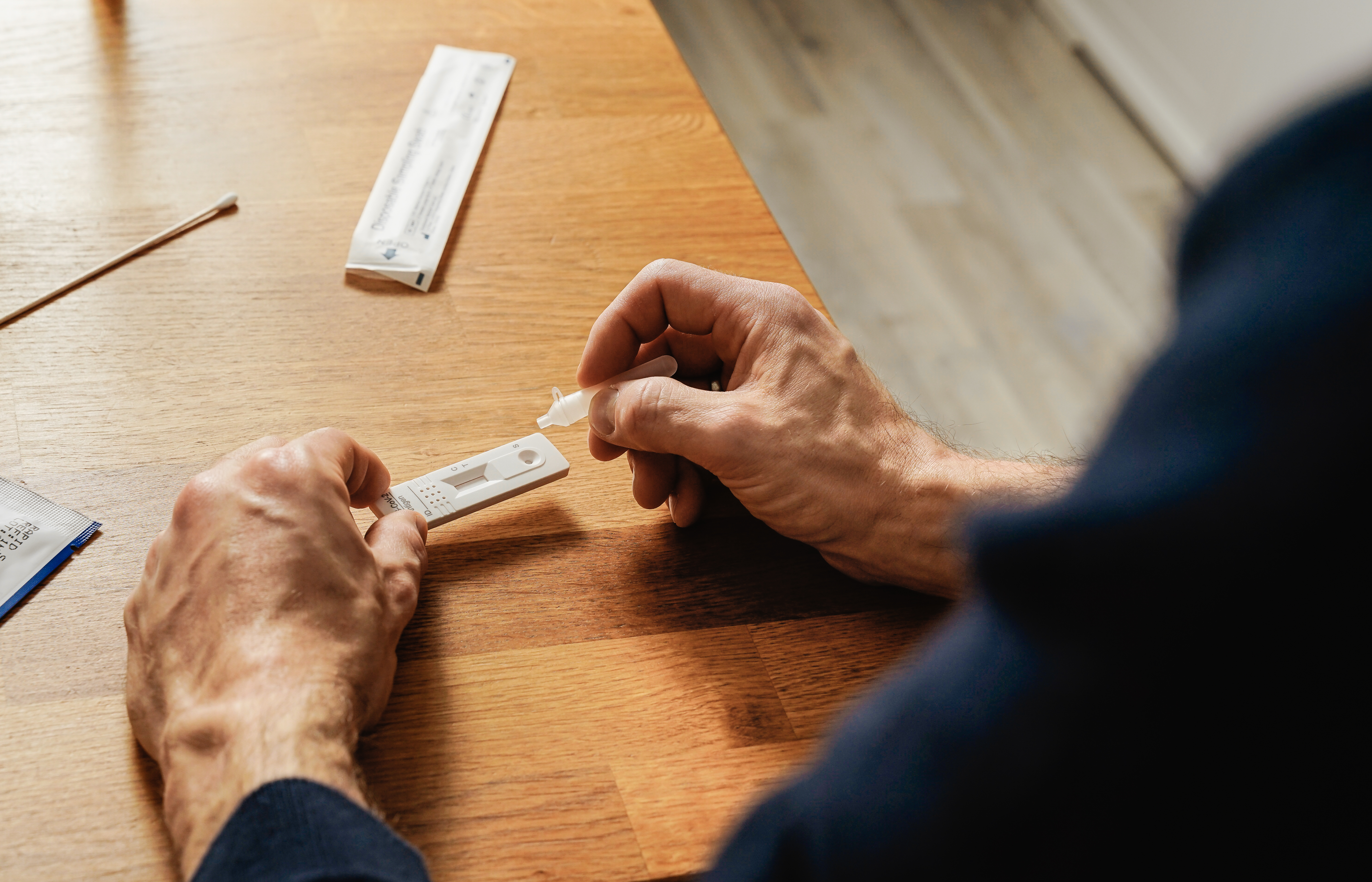By: Catheryne Houde
As provinces scale back COVID-19 testing in clinics, many Canadians now rely on at-home rapid antigen tests – including the 1.5 million Canadians who are blind or partially sighted.
We heard loud and clear from our community that people with sight loss are unable to independently read the printed instructions, administer the tests with accuracy, or verify the results of rapid antigen tests – meaning Canadians with sight loss do not have access to an important tool in the fight against COVID-19.
 CNIB is calling on provincial governments and local public health authorities to ensure that tests are made accessible to people who are blind or partially sighted. This includes providing testing instructions in braille, large print, digital or audio formats.
CNIB is calling on provincial governments and local public health authorities to ensure that tests are made accessible to people who are blind or partially sighted. This includes providing testing instructions in braille, large print, digital or audio formats.
In the United Kingdom, the NHS utilizes the “Be My Eyes Specialized Help” app for individuals to connect with sighted support agents through their smartphones. These agents have received special training from the COVID rapid test manufacturers and can walk a person who is blind or partially sighted through all the steps and the test results.
Here is one example of how Be My Eyes Specialized Help can support a person with sight loss to administer the test safely and independently.
For those who cannot utilize a smartphone device, measures must be developed to ensure that public health agencies and pharmacies provide these tests and can walk through the process with an individual with sight loss.
We wish to further discuss with provincial governments practical solutions to improve the accessibility of COVID at-home testing for every Canadian.
As vaccination and testing are among the most important tools in the fight against the COVID-19 pandemic (and potentially other diseases), we hope that provincial governments will live up to their standards and commitments regarding accessibility and respect for the rights of people who are blind or partially sighted. CNIB is here to support them.
Listen to the interview with Sarah Rouleau, Head of Communications and Marketing of CNIB's Francophone Programs and Canal M on COVID-19 Accessibility (French only).